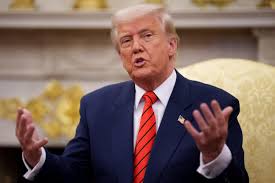
Breaking News
 "The US Government is controlling the weather!" Americans better wake up! | Redacted News
"The US Government is controlling the weather!" Americans better wake up! | Redacted News
 Goodbye Jury Trials, Hello Digital ID: 10 "recommendations"...
Goodbye Jury Trials, Hello Digital ID: 10 "recommendations"...
Top Tech News
 Dark Matter: An 86-lb, 800-hp EV motor by Koenigsegg
Dark Matter: An 86-lb, 800-hp EV motor by Koenigsegg
 Spacetop puts a massive multi-window workspace in front of your eyes
Spacetop puts a massive multi-window workspace in front of your eyes
 Cramming More Components Onto Integrated Circuits
Cramming More Components Onto Integrated Circuits
 'Cyborg 1.0': World's First Robocop Debuts With Facial Recognition And 360° Camera Visio
'Cyborg 1.0': World's First Robocop Debuts With Facial Recognition And 360° Camera Visio
 The Immense Complexity of a Brain is Mapped in 3D for the First Time:
The Immense Complexity of a Brain is Mapped in 3D for the First Time:
 SpaceX, Palantir and Anduril Partnership Competing for the US Golden Dome Missile Defense Contracts
SpaceX, Palantir and Anduril Partnership Competing for the US Golden Dome Missile Defense Contracts
 US government announces it has achieved ability to 'manipulate space and time' with new tech
US government announces it has achieved ability to 'manipulate space and time' with new tech
 Scientists reach pivotal breakthrough in quest for limitless energy:
Scientists reach pivotal breakthrough in quest for limitless energy:
100 Days: What Trump Told TIME

The first was that he would successfully conclude diplomatic deals in the Ukrainian-Russian war and in Iran. The second was that he wouldn't mind expanding American territory. Neither claim is entirely new, but elements of each were made with greater clarity than before.
After saying that he believes that peace is possible in Ukraine with Vladimir Putin and Volodymyr Zelensky both as presidents, but that success was contingent upon Trump being the president negotiating the deal, Trump was asked specifically about two difficult questions in the negotiations: NATO membership for Ukraine and territorial agreements.
Trump said two things about NATO. Crucially for the negotiations, when asked if Ukraine should "give up any hope of ever joining NATO," he said, "I don't think they'll ever be able to join NATO." Three days earlier, Trump's special envoy for Ukraine Keith Kellog told Ukrainian, French, British and German officials that "NATO isn't on the table." Trump's answer to the Time's interviewers is a clear statement of that American position in negotiations. The one-page peace plan that the U.S. presented to Ukraine in Paris on April 17 as the United State's "final offer" firmly states that "Ukraine will not seek to join NATO."
The second thing Trump said about NATO was that "what caused the war to start was when they started talking about joining NATO." Talk of the war being provoked and Russia having legitimate security concerns has been heresy in the West. But it is a point that has been conceded by both Ukraine and NATO.
David Arakhamia, who led the Ukrainian negotiating team in the Belarus and Istanbul talks, confirmed that an assurance that Ukraine would not join NATO was the "key point" for Russia. According to Arakhamia, "They were prepared to end the war if we agreed to, as Finland once did, neutrality, and committed that we would not join NATO." Zelensky, himself, said that the promise not to join NATO "was the first fundamental point for the Russian Federation" and that "as far as I remember, they started a war because of this."
Jens Stoltenberg, who was then the Secretary General of NATO, said that a NATO promise of no further enlargement "was a precondition" for Russia "not [to] invade Ukraine." Putin, Stoltenberg said, "went to war to prevent NATO, more NATO, close to his borders."
Moving from NATO to a territorial settlement, Time asked Trump if Russia should get to keep Crimea. Trump answered flatly that "Crimea will stay with Russia." According to "a source close to [Trump's special envoy Steve] Witkoff," "The deal on the table is that the Russian-occupied territory is going to remain occupied. Russia's not pulling it out of it. That part is set in stone." The U.S. peace plan sets out that Washington will officially recognize "Russian control of Crimea" and de facto recognize territory in the Donbas currently occupied by Russia as under "Russian control." Trump's Time statement seems to confirm a settled American position on Crimea.
As with Ukraine, Trump expressed optimism about successfully negotiating a nuclear agreement with Iran. However, he maintained the military threat.

 The Cow That Lives Forever
The Cow That Lives Forever
 IT'S ABOUT TIME! HAHA!
IT'S ABOUT TIME! HAHA! Kawasaki CORLEO Walks Like a Robot, Rides Like a Bike!
Kawasaki CORLEO Walks Like a Robot, Rides Like a Bike! Barrel-rotor flying car prototype begins flight testing
Barrel-rotor flying car prototype begins flight testing

